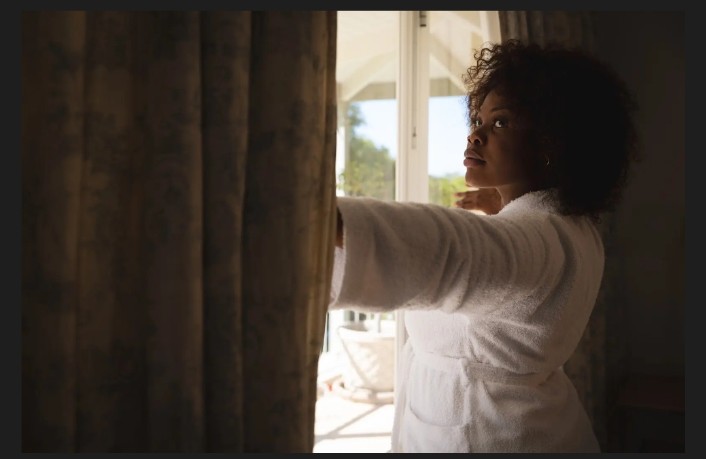Choosing the right window treatment can significantly impact the comfort, style, and function of your space. When it comes to shades, two popular options often come up: blackout shades and light filtering shades. Both have their benefits, but the right choice depends on your needs for light control, privacy, and the aesthetic you’re aiming for. Here’s an easy guide to help you determine whether blackout or light filtering shades are the best fit for your room.
Understanding the Differences
What Are Blackout Shades?
Blindster blackout shades are designed to completely block out light. Made from thick, opaque materials, they are ideal for rooms where you want to achieve total darkness. They’re often used in:
Bedrooms: Perfect for ensuring a good night’s sleep, especially for light-sensitive sleepers or children.
Media Rooms: Ideal for reducing glare on TV screens, enhancing your movie-watching experience.
Nurseries: Great for ensuring young children can nap peacefully during the day.
What Are Light Filtering Shades?
Light filtering shades, on the other hand, are designed to let in some light while maintaining privacy. They diffuse sunlight, allowing a soft glow to enter the room without the harshness of direct rays. These shades are great for:
Living Rooms: Creating a bright, warm atmosphere while minimizing glare.
Home Offices: Maintaining a balance between natural light and privacy for a comfortable working environment.
Kitchens: Letting in light while ensuring privacy and keeping the space cheerful.
Benefits of Blackout Shades
Maximum Light Control
If you need complete darkness, blackout shades are the way to go. They are particularly useful for:
Shift Workers: For those who need to sleep during the day, blackout shades can simulate nighttime conditions, helping with better rest.
Light Sleepers: Any light from street lamps or car headlights can disturb your sleep cycle. Blackout shades ensure you won’t be woken by unexpected flashes of light.
Improved Energy Efficiency
Blackout shades help with insulation by blocking the sun’s heat during summer and keeping warmth in during winter. This energy efficiency can help reduce heating and cooling costs.
Enhanced Privacy
If privacy is your top priority, blackout shades are unbeatable. They completely block the view from outside, making them ideal for rooms that face busy streets or neighbors.
Benefits of Light Filtering Shades
Soft, Natural Light
Light filtering shades allow natural light to come in, but they soften it to avoid glare. This creates a bright but cozy ambiance, making it ideal for common areas where you want natural light without the harshness of direct sunlight.
Maintaining Outside Views
While they offer privacy, light filtering shades also allow you to maintain some visibility of the outside. You can still enjoy the view of your garden or neighborhood while feeling secluded.
Versatility and Aesthetics
Light filtering shades come in a wide range of fabrics and styles, making them versatile enough to complement any decor. They can add a layer of warmth and texture to the room, enhancing its overall look.
When to Choose Blackout Shades
Bedrooms and Nurseries
If you want your bedroom to be as dark as possible, especially during early mornings or midday naps, blackout shades are a smart choice. They create the ideal sleep environment by blocking out the sun, streetlights, and other external lights. This is especially helpful if you have kids who need daytime naps or for nurseries to ensure uninterrupted sleep for babies.
Media and Entertainment Rooms
For rooms where you watch movies or play games, blackout shades can reduce screen glare and enhance the overall experience. By eliminating excess light, they help create the perfect “theater feel.”
Spaces Needing Maximum Privacy
If your windows face a busy street or neighbors, blackout shades provide peace of mind by ensuring no one can see inside your home. This can be particularly beneficial for bathrooms or bedrooms that are easily visible from outside.
When to Choose Light Filtering Shades
Living Rooms and Kitchens
For areas of the home that you want to keep bright and inviting, light filtering shades work wonders. They let in enough sunlight to create a cheerful ambiance without overpowering the room with harsh rays. These shades are also perfect for kitchens where you need natural light but want to avoid overheating or glare while cooking.
Home Offices
If you work from home, having natural light is crucial for comfort and productivity. Light filtering shades help balance light, keeping the room well-lit without causing screen glare or the need to frequently adjust lighting.
Rooms with Great Views
If your home has beautiful views, light filtering shades allow you to maintain a connection with the outdoors. Unlike blackout shades, they keep you from feeling completely shut off, making them ideal for spaces where you want both privacy and a glimpse of what’s happening outside.
Factors to Consider When Choosing Between Blackout and Light Filtering Shades
Privacy Needs
Total Privacy: Choose blackout shades. They will block everything from view, giving you the ultimate level of privacy.
Moderate Privacy: Light filtering shades provide privacy without completely blocking natural light. They are a good middle-ground option for rooms where you want to maintain a sense of openness.
Light Control
Total Darkness: If you need to eliminate all light for sleep or a specific activity, blackout shades are the best choice.
Soft Lighting: If you prefer natural light filtered into your room, light filtering shades allow for a well-lit, yet comfortable, environment.
Room Function
Consider what the room is used for. Bedrooms, nurseries, and media rooms often benefit from blackout shades, whereas living rooms, kitchens, and offices are better suited to light filtering shades to maintain a bright, welcoming atmosphere.
Energy Efficiency
Both types of shades can improve energy efficiency, but blackout shades are typically more effective because they block sunlight and insulate better. However, light filtering shades can still help keep rooms cooler by diffusing harsh sunlight.
Style and Aesthetic
If the style is important, light filtering shades offer a wide range of fabric options that can match your decor and add a layer of texture to your space. Blackout shades can also be stylish but are more about function than aesthetics. They can be paired with curtains to create a layered look that’s both practical and decorative.
The Option to Layer Shades
If you find it hard to choose between the two, layering can be a fantastic solution. You can use both blackout and light filtering shades together for maximum versatility. For example:
Bedrooms: Use blackout shades at night to ensure total darkness, and light filtering shades during the day to allow natural light without compromising privacy.
Living Rooms: Light filtering shades can be layered with heavier drapes or blackout curtains, giving you full control over the level of light throughout the day.
Conclusion
Choosing between blackout and light filtering shades comes down to the function and purpose of each room in your home. If you need total darkness, energy efficiency, and privacy, blackout shades are a perfect choice, especially for bedrooms, nurseries, and media rooms. On the other hand, if you value natural light, moderate privacy, and a cozy atmosphere, light filtering shades are a great fit for living areas, kitchens, and home offices.
The key is understanding your specific needs and how you want each room to feel and function. Whether you’re aiming for complete darkness to enhance sleep or a soft glow to keep your space bright and welcoming, selecting the right shade will
help create the perfect environment for you and your family.


